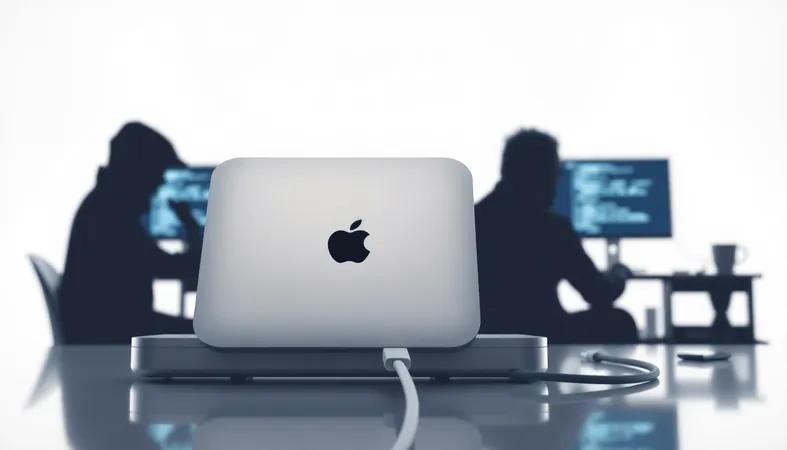
Major Security Breach: Apple’s ACE3 USB-C Controller Vulnerated by Researcher!
2025-01-13
Author: Siti
Introduction
In an alarming development for Apple device users, a prominent security researcher has successfully hacked Apple’s ACE3 USB-C controller, a key component tasked with managing charging and data transfer on the latest Apple gadgets. This breach, first brought to light at the 38th Chaos Communication Congress in late December, has recently gained significant attention as details of the attack have emerged, exposing severe vulnerabilities in Apple’s USB-C security measures.
The Hacker Behind the Breach
The mastermind behind this hack, Thomas Roth, conducted a thorough technical demonstration that illustrated how he reverse-engineered the ACE3 controller, extracting its internal firmware and communication protocols. By exploiting identified weaknesses, Roth was able to reprogram the controller, thereby gaining unauthorized capabilities—such as bypassing essential security checks and injecting harmful commands into Apple devices.
Vulnerabilities Exploited
The root of this vulnerability lies in Apple’s failure to implement robust safeguards within the firmware of the ACE3 controller. As a result, a determined attacker can potentially gain low-level access by utilizing specially crafted USB-C cables or devices. This means that once access is obtained, the compromised controller can mimic trusted accessories, enabling harmful activities without the user’s consent.
Potential Consequences
As highlighted by Cyber Security News, the ramifications of such a breach are significant; compromising the ACE3 controller could lead to untethered jailbreaks or persistent firmware implants that jeopardize the entire operating system. Moreover, malicious individuals could exploit these vulnerabilities to siphon off sensitive information or gain control over devices incautiously connected to compromised accessories.
User Precautions
While Apple users shouldn’t panic just yet—given the complexity of the attack and the specific conditions required to exploit it—the potential for malicious hackers to employ Roth’s methodology is a serious concern. If left unaddressed, this vulnerability could pave the way for unauthorized data access and unwarranted device manipulation, including interception of sensitive information during data transfers.
Conclusion
Currently, Apple has not released an official statement or provided a timeline regarding the resolution of the ACE3 controller flaw. In the interim, users are urged to exercise caution. With the ever-evolving landscape of cybersecurity threats, it’s essential to stay informed and vigilant.
Stay Updated
Stay tuned for continuous updates on this unfolding story—Apple’s response could reshape the future of device security!





 Brasil (PT)
Brasil (PT)
 Canada (EN)
Canada (EN)
 Chile (ES)
Chile (ES)
 Česko (CS)
Česko (CS)
 대한민국 (KO)
대한민국 (KO)
 España (ES)
España (ES)
 France (FR)
France (FR)
 Hong Kong (EN)
Hong Kong (EN)
 Italia (IT)
Italia (IT)
 日本 (JA)
日本 (JA)
 Magyarország (HU)
Magyarország (HU)
 Norge (NO)
Norge (NO)
 Polska (PL)
Polska (PL)
 Schweiz (DE)
Schweiz (DE)
 Singapore (EN)
Singapore (EN)
 Sverige (SV)
Sverige (SV)
 Suomi (FI)
Suomi (FI)
 Türkiye (TR)
Türkiye (TR)
 الإمارات العربية المتحدة (AR)
الإمارات العربية المتحدة (AR)